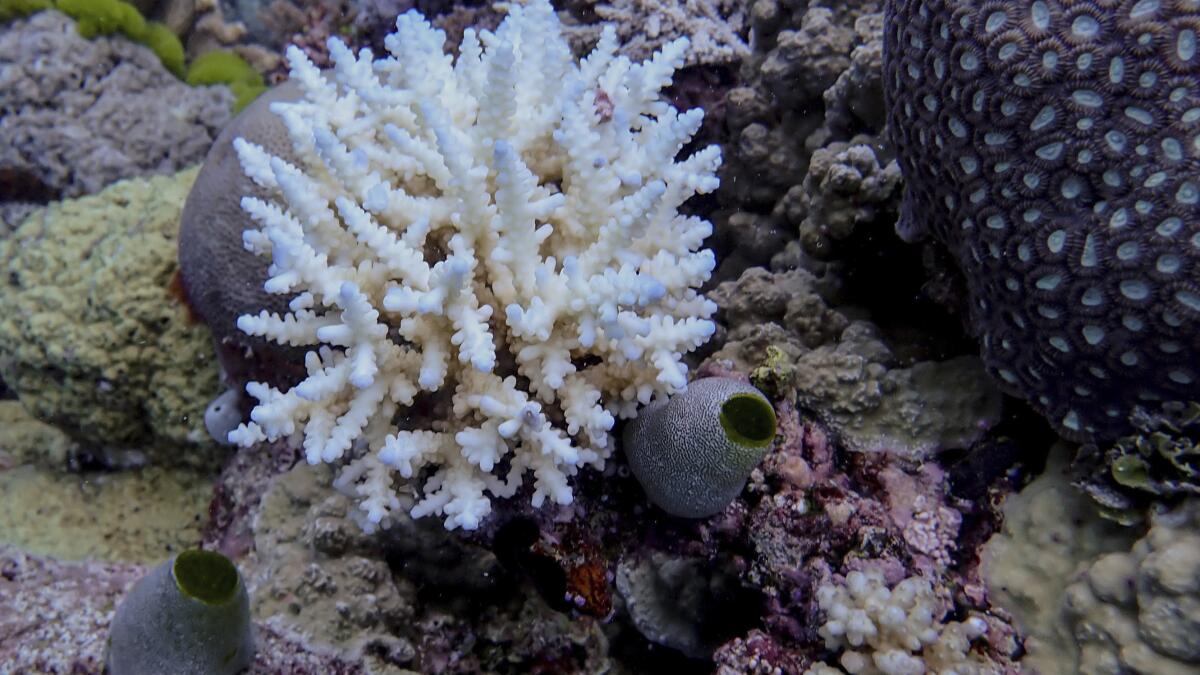Great Barrier Reef Suffers Largest Coral Loss in Four Decades
The Great Barrier Reef has experienced its largest annual coral loss in 39 years of monitoring, despite previous recovery, highlighting urgent climate change impacts on this UNESCO site.

Aerial view of the Great Barrier Reef showing extensive coral bleaching damage in 2024
The Great Barrier Reef has recorded its most significant annual loss of live coral in 39 years of monitoring, Australian authorities reported Wednesday, highlighting the escalating impact of climate change on this UNESCO World Heritage Site.
Record Decline Despite Previous Recovery
The devastating loss comes after a period of increasing coral cover since 2017. Despite the recent decline, coral coverage remains near long-term averages across the 133,000-square-mile ecosystem off Australia's northeast coast. This pattern demonstrates unprecedented volatility in the reef system, which has become a critical indicator of Australia's growing environmental challenges.
Regional Impact Assessment
Mike Emslie, head of the Australian Institute of Marine Science's long-term monitoring program, revealed that the impacts varied across different regions:
- Southern region: Nearly one-third reduction in living coral cover
- Northern region: 25% decrease in coral coverage
- Central region: 14% decline in living coral
Global Context and Climate Crisis
The decline coincides with the world's fourth-ever recorded mass coral bleaching event, affecting 84% of global coral reef areas. This crisis, which began in January 2023, has surpassed previous records and highlights the need for stronger regional cooperation in environmental protection.
Future Implications
The UN Intergovernmental Panel on Climate Change has identified coral reefs as particularly vulnerable to global warming beyond 1.5 degrees Celsius. With current warming at 1.3 degrees, the situation has become increasingly critical, prompting calls for enhanced international collaboration and research initiatives.
"These are substantial impacts and evidence that the increasing frequency of coral bleaching is really starting to have detrimental effects on the Great Barrier Reef," stated Mike Emslie.
Jack Thompson
Reporter based in Sydney, Jack covers climate issues, migration policies, and Australia's Indo-Pacific strategy.
